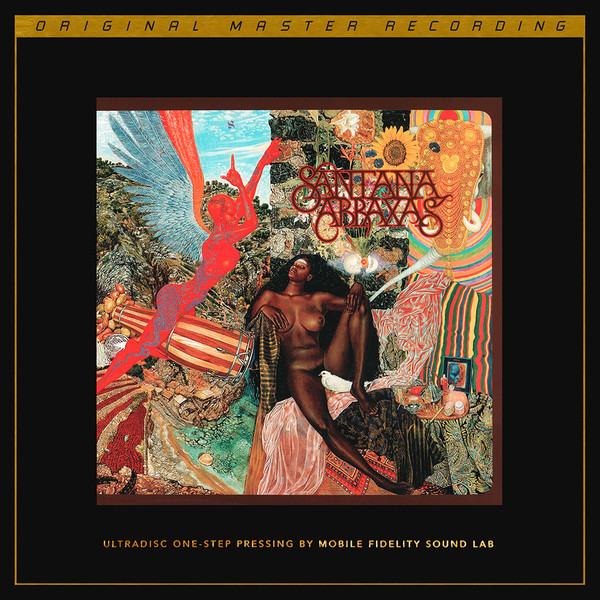I plan to write a more thorough review of MoFi’s One Step of Abraxas, but let this quickie post act as a place holder in the meantime.
A friend of mine loaned me his copy of the above a few weeks ago and it wasn’t until yesterday that I got around to giving it a serious listen. I played the first side (it’s a 45 rpm so this is the first two tracks on the album), and a few minutes of the second and made some notes.
Then I sent him an email:
Hi A.B.,
I finally got a chance to sit down with your Abraxas One Step today. To be honest, I have a hard time identifying almost ANY redeeming qualities in this record, and the fact that I had to flip the record over after Black Magic Woman only added insult to injury.
A.B. replied:
Ha! I know! It’s absurd having to flip the record right there. It really is. It’s like when I was a kid and that Led Zeppelin “remasters” four-CD box set came out. We were all gaga. Then, listening to it, they separated Heartbreaker from Living Loving Maid. It was a travesty!
But, more importantly, yeah the sound of that record is one that got me really thinking about things differently. It primed me for being open to Better Records, and in fact, Abraxas was my second hot stamper purchase.
It’s good to hear your impressions align with mine. What I really want though is to find somebody else who owns an Abraxas one-step. There is some chance that the copy I bought is actually defective somehow. I bought it sans box, knowing it had been passed around a lot. Or, maybe I should just let it go and get on with life.
The best evidence I have that it would sound just like one fresh from the box is that I also used to have the earlier MoFi Abraxas. The two sounded very similar, with the onestep sounding better. And, neither sounds anything like a hot stamper, or even a vanilla original.
I replied:
I don’t think it’s defective. It may not be the best pressed copy out there, although with only 2500 pressed I would think they could achieve a reasonable degree of quality control.
The sound of this record reflects choices the mastering engineer made in the cutting room. I can only imagine what drove those choices, but I cannot help but think that Mr. Wunderlich sought to “fix” certain problems and make a record he thought would sound better than the originals, or at least whatever original(s) he’s heard, assuming he has.
There’s more to come, but in the meantime, feel free to check out my recent post on Abraxas where I share my experiences listening to the Hot Stamper of Abraxas Aaron mentions above.
Oh, and if you’re considering ponying up the more than $1500 it will cost you these days for a copy of this record, PLEASE! Just wait a little while until I post my review.
